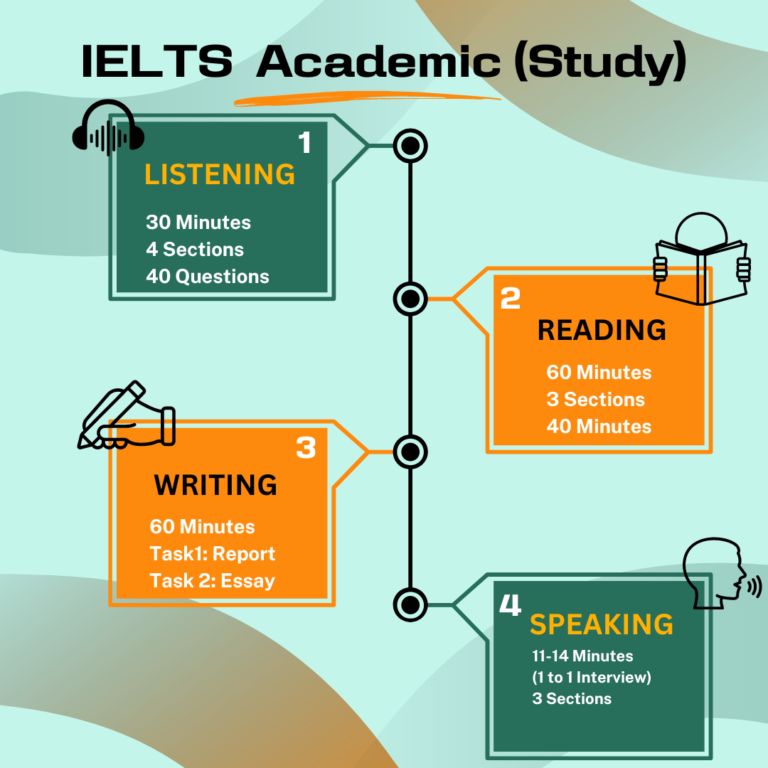IELTS, the International English Language Testing System, is widely recognized and accepted as a leading English proficiency test by over 10,000 educational institutions, professional organizations, immigration authorities, and employers worldwide. Administered by the IDP education system, the test assesses applicants’ proficiency in four language skills: Listening, Reading, Writing, and Speaking, drawing participants from around the globe. Individuals aspiring to study or immigrate to English-speaking countries typically take the IELTS test, with over 3 million applicants annually representing over 150 countries pursuing higher education, professional registration, and permanent residency.
The IELTS test comprises two types: IELTS Academic and IELTS General Training. Choosing the appropriate type is crucial for prospective test-takers.
1.Academic Test:This version is designed for students aiming to pursue education in international institutions.
2.General Training Test:Chosen by those seeking employment or work opportunities in international settings.
While the scoring for IELTS Listening, Speaking, and Writing remains consistent across both tests, the Reading section, accounting for 25% of the overall score, is evaluated differently in IELTS Academic versus IELTS General Training. The distinction between these two versions lies not only in their purposes but also in the specific evaluation criteria applied to the Reading component.

Individuals eligible to take the IELTS exam include those with a valid passport who are seeking opportunities for higher studies, employment, or migration. Specifically:
1.Students:Those aspiring to pursue higher education abroad, particularly with top-rated universities, to enhance their academic journey or secure a scholarship can opt for the Academic IELTS.
2.Applicants for Permanent Residency (PR):Individuals planning to stay abroad and apply for a Permanent Residency visa.
3.Migration Aspirants: Those seeking to migrate to a foreign country, as IELTS is often a requirement for immigration purposes.
Both Task 1 and Task 2 have specific formats you need to follow. Familiarize yourself with the official guidelines and expectations for each task.
Use a range of academic vocabulary and avoid informal language or slang. Demonstrate your knowledge of synonyms and advanced grammar structures.
Practice regularly with past papers and model essays. Use feedback from teachers or tutors to identify and address your weaknesses.
Focus on the key features, trends, and comparisons presented in the data. Organize your report logically using headings and paragraphs.
Avoid directly copying the information from the source material. Use your own words and sentence structures while conveying the same meaning accurately.
Clearly state your thesis statement and support it with relevant evidence and examples. Use logical transitions to connect your ideas smoothly.
Pay attention to grammar, punctuation, and spelling errors. Ensure your essay is well-organized and free from irrelevant information.
Munu International stands out as a prominent consultancy specializing in global education, committed to guiding Indian students in realizing their academic ambitions on the international front. Our resolute dedication to excellence and an enduring enthusiasm for education have established us as a reliable partner in helping students pursue their overseas study dreams.
Flat no:101, First Floor, Ameer Estate,
beside S.R. Nagar Bus stop, Ameerpet, Hyderabad-500038
Opp.Metro Pillar -1038
Copyright © 2023, All Rights Reserved By Munu International